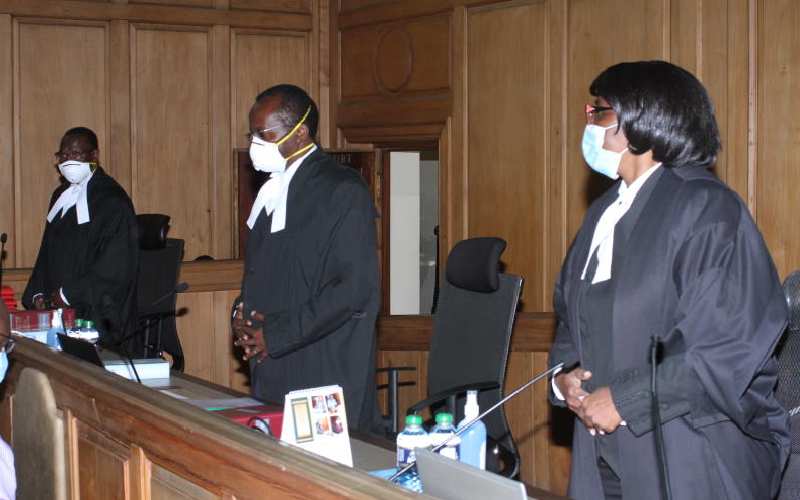×
The Standard e-Paper
Smart Minds Choose Us

Court of appeal Judges Hannah Okwengu, Daniel Musinga and Roseline Nambuye at the Supreme court building on June 2, 2021, during the mention of the BBI case appeal.[Collins Kweyu,Standard]
The Court of Appeal has refused to be drawn into President Uhuru Kenyatta’s fight with the Judiciary as judges began hearing appeals on the Building Bridges Initiative (BBI) to amend the Constitution.